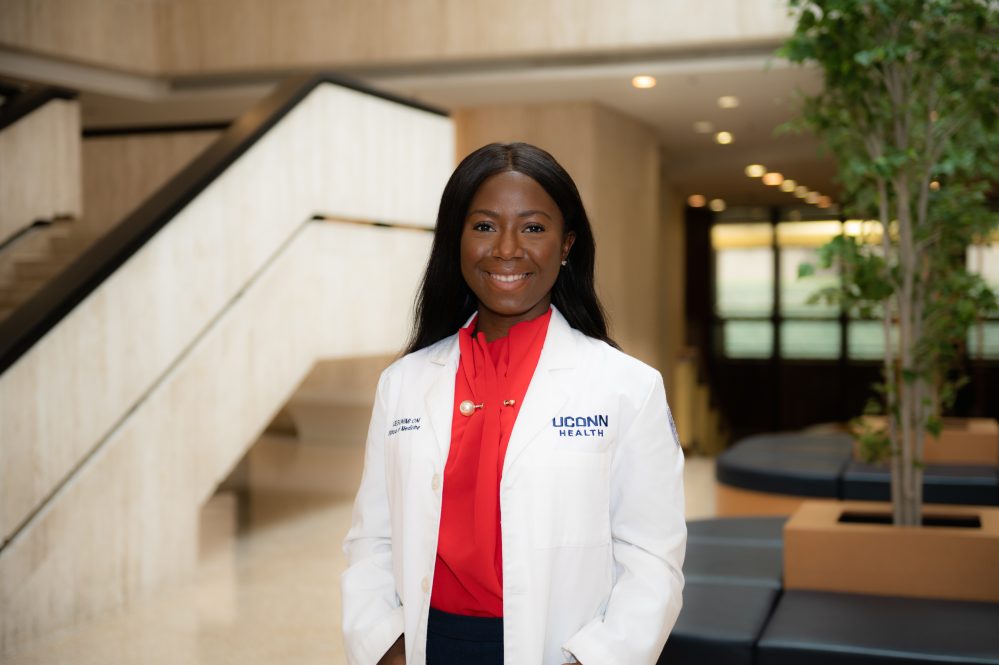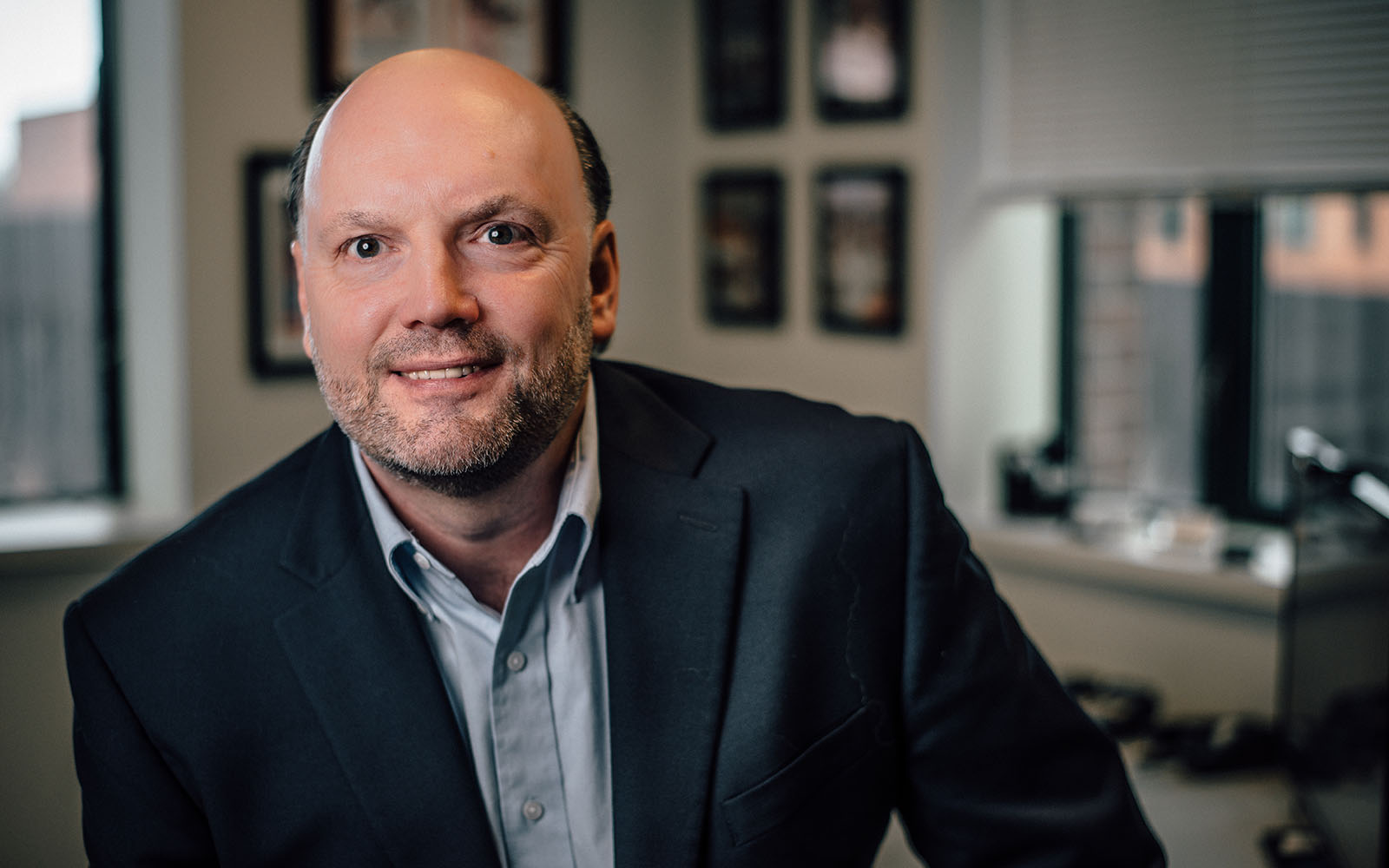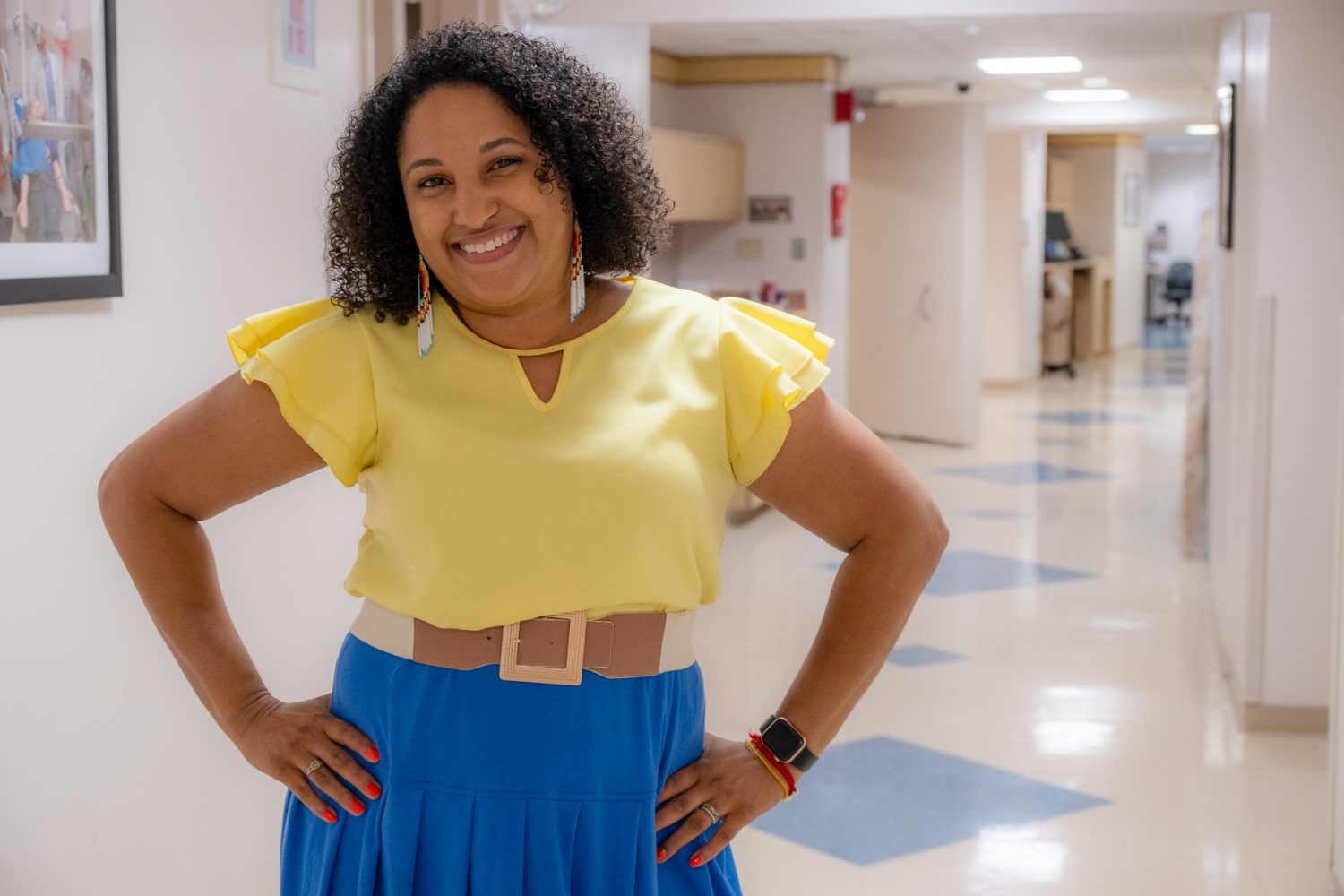Even before receiving her degree from UConn School of Medicine, Tijesunimi Oni was making history.
In February, she became the first Black woman at UConn to match into a urology program, at the prestigious University of Maryland Medical Center. UConn’s commitment to diversifying the field of medicine was one of the factors that led the Georgetown graduate to enroll here as a medical student.
Now, as a doctor, she’ll be part of a new generation of healers addressing health disparities in communities throughout the United States.
Why did you choose UConn?
I chose UConn because of the experience I had with the Health Career Opportunities Program (HCOP) when I was still an undergraduate. I had the opportunity to spend a summer at UConn Health through HCOP as part of the Health Disparities Clinical Summer Research Fellowship Program which provided me with the unique experience of doing health disparities research while gaining invaluable clinical shadowing experiences. I benefited so much from this program as a pre-med student. When it came time to select a medical school, I could not forget the commitment to diversifying medicine and supporting students from underrepresented in medicine backgrounds that UConn and HCOP had already demonstrated. I felt confident that I would be supported here and gain the training necessary to become the culturally-sensitive physician, who serves underserved communities that I desire to be.
Why did you choose to enter medical school/the field of medicine?
I have wanted to be a physician for as long as I can remember primarily due to the influence of my father who was trained as a physician in Nigeria. As an undergraduate studying global health at Georgetown University, I reaffirmed my decision to pursue medicine because of my desire to be part of the physician workforce and address the vast disparities that I saw affecting marginalized communities both domestically and abroad.
What are your plans after graduation?
I will be moving to Baltimore to begin my residency training in Urology at the University of Maryland Medical Center.
What activities were you involved with as a student?
I was involved in the Student National Medical Association (SNMA) which is an organization committed to supporting current and future underrepresented minority medical students, addressing the needs of underserved communities, and increasing the number of clinically excellent, culturally competent and socially conscious physicians. Over the years I have served as UConn SNMA’s social chair and president, as well as on the regional SNMA board for the New England region. I have also been involved with the Christian Medical Dental Association, the Student Diversity Equity Inclusion Committee, and the Gold Humanism Honor Society.
How has UConn prepared you for the next chapter in life?
UConn has prepared me to be a strong and empathetic member of the medical team. I have worked with various health professionals and have learned what each team member’s unique role is. I have also learned to advocate for my patients and understand the importance of cultural competence and social determinants of health in caring for patients.
What’s one thing that surprised you about UConn?
I was surprised by the diversity of the patients served by UConn and surrounding hospitals. Not being from Connecticut, I had certain ideas of what the population would be like. I have been pleasantly surprised by the diverse patient population I have been able to learn from and care for.
Any advice for incoming first-year medical students?
As much as you can, do your best not to compare yourself to others. In the field of medicine it is incredibly hard to not compare when things can be so competitive and your peers a so brilliant. Imposter syndrome is so real and it can really break you down if you let it. Just remember that you are here for a reason. You deserve to be here. You are have your own unique story and strengths.
Who was your favorite mentor and why?
I have had so many wonderful mentors in my time at UConn Health. Someone who is very special to me is Dr. Lenora Williams. She was my CLIC (longitudinal clinical) preceptor whom I was paired prior to even beginning first year of medical school. We worked together once a week for 3 years in her OBGYN clinic. Although I did not choose to pursue obstetrics and gynecology, her support and mentorship over the years has been invaluable.
What was it like training to be a doctor during a pandemic?
It was difficult training to be a doctor during a pandemic. Some issues included dealing with unexpected changes to testing schedules and having certain clinical experiences truncated or restricted. However, I feel it has been a great learning opportunity in counseling patients on illness prevention, discussing public health interventions, and dealing with many differing opinions.



